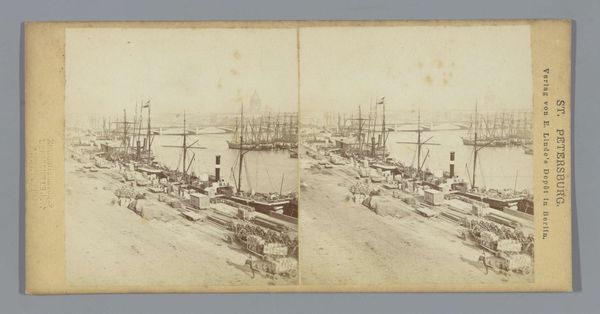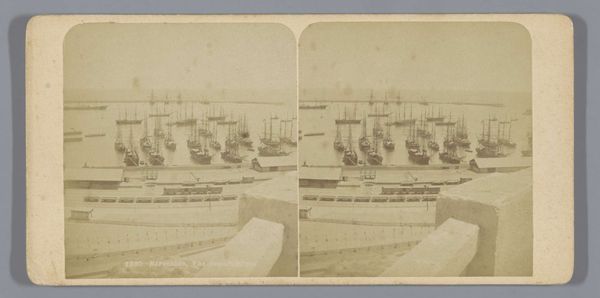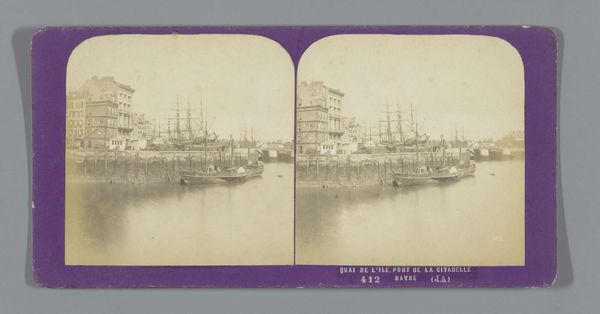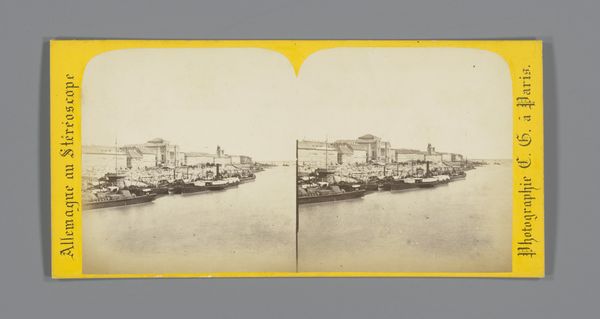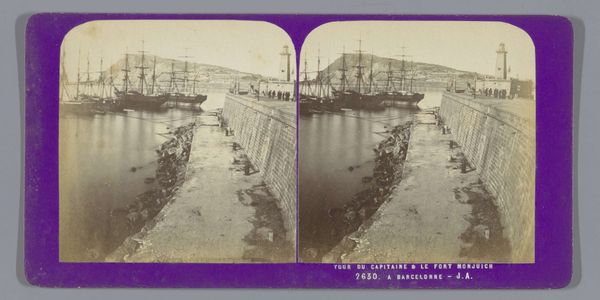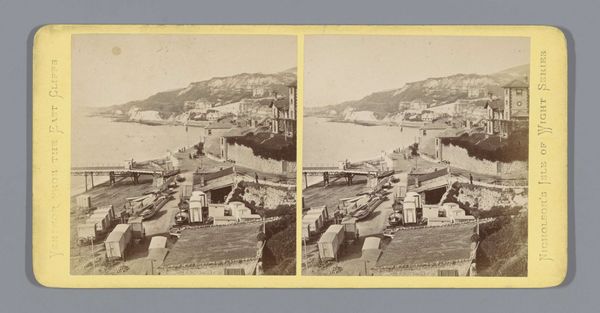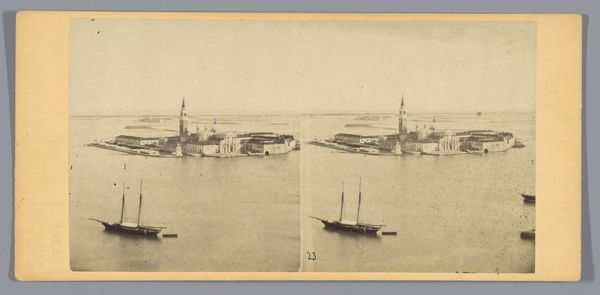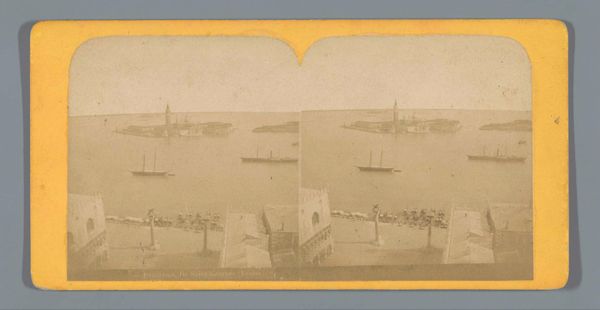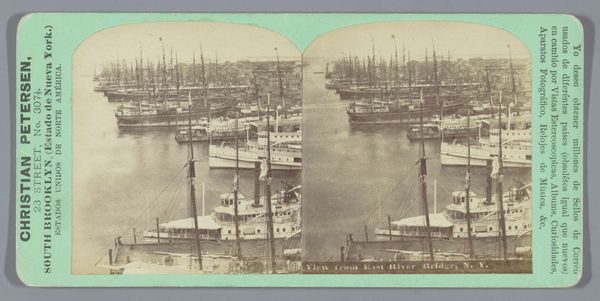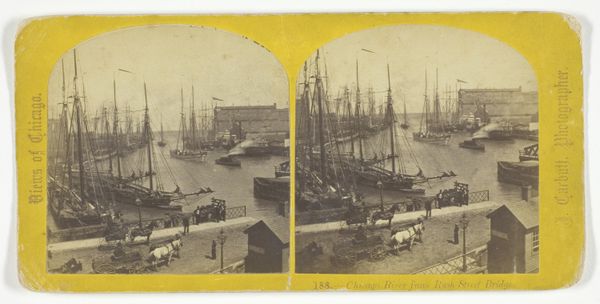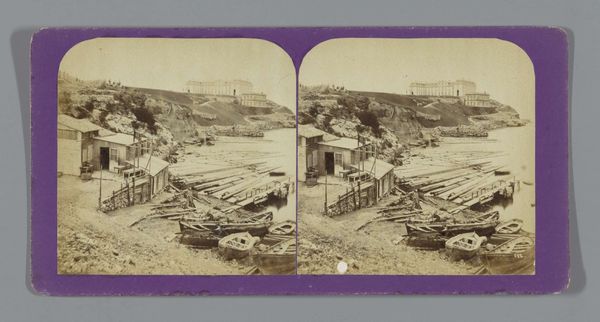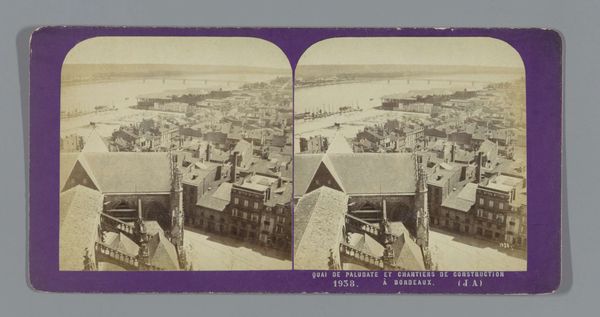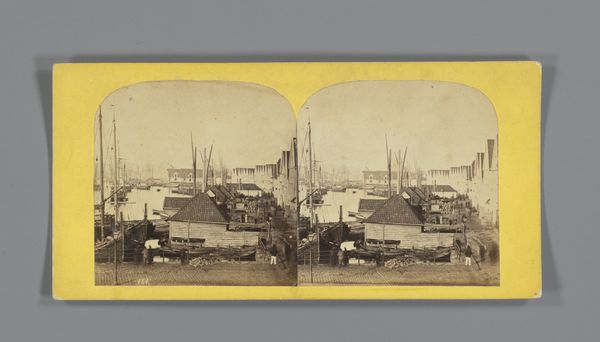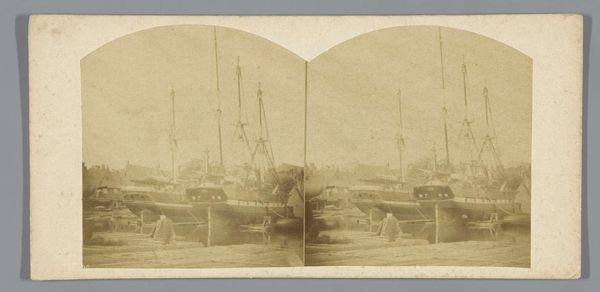
Dimensions: height 85 mm, width 170 mm
Copyright: Rijks Museum: Open Domain
Curator: What immediately strikes me about this photograph is the stark contrast between the delicate ships at sea and the rough textures of the port buildings. Editor: I agree. It's almost a collision of romantic aspirations, reflected in the vessels, versus the stark realities of maritime labour and trade happening in port. This is a gelatin silver print photograph entitled, "Schepen in de haven van Marseille" or "Ships in the Port of Marseille," attributed to Jean Andrieu, and it dates from between 1862 and 1876. Curator: Knowing that it comes from the 1860s makes it particularly interesting. I think one must consider the larger context; this piece exists as a commentary on Marseilles' colonial exploits in a way that's rooted in burgeoning imperialism. How do the materials reinforce that for you? Editor: Absolutely. I focus on that era, the 1860s onward, seeing this as one of great transition and technical transformation in photographic processes. Examining the production of the print is crucial. It shows how advancements made photography accessible for more expansive social and industrial applications, aiding both the construction and administration of globalized trade, travel, and exploitation. The texture itself, which seems both fragile and sturdy, reflects that tension, that shift. Curator: It's definitely interesting that the romantic sensibility clashes with the reality that these ships weren't merely decorative. This romantic idealism glosses over the harsh realities of a mercantile economy in full swing. Editor: Exactly! How the image portrays industry versus the individual. Even the small figures feel diminutive against the scale of both the ships and the architecture. And it's easy to consume art from this distance; to intellectualize its social importance as just the background to material or stylistic developments is easier. This era of "Realism" often obscures who is absent as a result of these romantic depictions of progress. Curator: That’s such a salient point. Considering it from the positionalities of power exposes how the aesthetic enjoyment it offered veils its complicated positionality, while reminding me that representation never tells the full story. Editor: Agreed, I appreciate this work, but thinking critically and relationally can still invite a greater historical context, always making the image more meaningful.
Comments
No comments
Be the first to comment and join the conversation on the ultimate creative platform.
